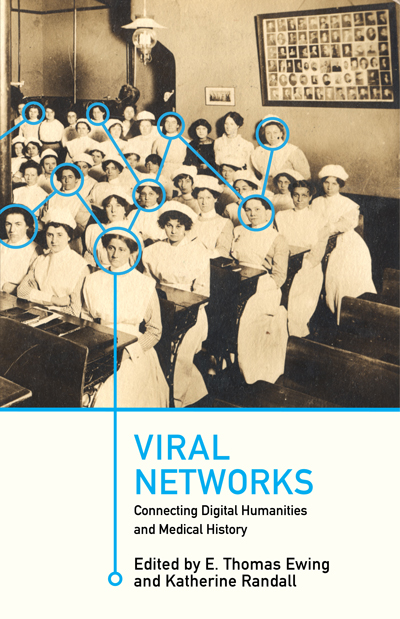JARS v59n1 - Victoria in 2005 - A Silver Salute
Victoria in 2005 - A Silver Salute
Norman Todd
Victoria, British Columbia
Canada
The highest mountain on Vancouver Island, the Golden Hinde, crests at 2195 meters (7201 feet) and is still growing. The tallest rhododendron that has been measured on Vancouver Island has a stature of 13 meters (42 feet) and is still growing. What is generally called Victoria has 13 municipalities and 14 tsars. Vancouver Island has five chapters of the American Rhododendron Society. It has an area of over 34,000 square kilometers, the same as Connecticut and New Jersey combined, or 40 percent that of Scotland. The population of the Island is about 700,000; Greater Victoria is home to more than one third of that. Henderson Lake, near Port Alberni, is the wettest spot in North America with over 6600 mm (26 feet) of precipitation a year. Downtown Victoria is the driest Island location with 607 mm (24 inches) a year, and as rhododendron growers know, almost none of it falls in summer. Victoria is the capital of British Columbia, much to the chagrin of mainland Vancouver. It has the reputation for being the place where old people come to visit their parents, but most visitors don't notice this when walking around the City of Gardens. Unfortunately, the famous hanging flower baskets are not hung on the lampposts until May. The convention does, however, coincide with the peak blooming time for rhododendrons, which blossom here from November through August.
The convention will be held in the Victoria Conference Centre, which connects to the Fairmont Empress Hotel. This hotel faces the Inner Harbour and overlooks the Legislative Buildings. Three other hotels are giving us preferred rates - the Chateau Victoria, Executive House, and the Royal Scott. Be sure to identify yourself as a delegate in order to obtain these rates. Bed and breakfast accommodation is plentiful. It is probably best to arrange this through the Internet. If you do want help with this, our registrar will be happy to assist.
The city is safe at night. There are a few panhandlers on the streets, day and night; these are best ignored. Many good restaurants are very close to the Convention Centre. For aficionados of Chinese food, Chinatown is nine blocks north of the Empress Hotel. In order to compensate for excessive calorific intake and for those who suffer from insomnia, curiosity, or excess energy, there will be short, brisk Early Bird walks daily at 6:45 a.m. led by guides who will point out places and items of interest.
The rubric chosen for the 2005 convention is "A Silver Salute" to mark the Victoria Rhododendron Society's 25th year as a chapter of the ARS. We hope it also conveys the message that it will be a sterling affair. The same year also marks the 60th birthday of our Society. These are good omens for having a successful convention. When Victoria hosted the ARS convention in 1989, 1100 attended - the largest participation on record. We were then blessed with zipperless sunshine and are hoping for a repeat performance, but there is a 30 percent probability of rain and the evenings can be cool. Packing rain gear and a sweater is advisable.
Mornings will be devoted to talks. Speakers are coming from all over the world - Australia, New Zealand, England, Sikkim, Seattle, Vancouver, and, of course, the Island. The topics to be discussed vary from the historical to the scientific, from exploration to expressions of prejudice on what are good plants. Garden tours will take place in the afternoons. These gardens range in size from a large city lot to several acres; most have fairly level terrain and are handicapped accessible.
Upon arrival, delegates should check in at the registration desk and pick up their registration materials and goodie bags. This desk will be open on Wednesday, April 27th, and throughout the conference. Members are encouraged to attend the Board of Directors' meeting on Wednesday in the Convention Centre.
A convention-quality plant sale will be open from morning to evening except when talks are in progress. Those wishing to take plants out of Canada will require a phythosanitary certificate for their purchases. An inspector from the Canadian Food and Drug Agency will be present to issue these. All plants on sale will have been inspected before being put on the sales table so the inspector has only to list the plants and sign the certificate. However, this may take some time. The issuing of phytos will probably take place on Saturday, so non-Canadians should make their purchases no later than Friday evening. Detailed instructions on conforming to the regulatory requirements will be available in the sales room.
The last weekend in April is the traditional time for the Victoria rhododendron truss and plant show. However, instead of the various entries being rated by a panel of appointed judges, all registrants will decide the ranking. Ballot forms will be distributed, and all are encouraged to participate. The complicated protocols for scrutinizing political elections will not be followed, and no subsequent litigation will be permitted.
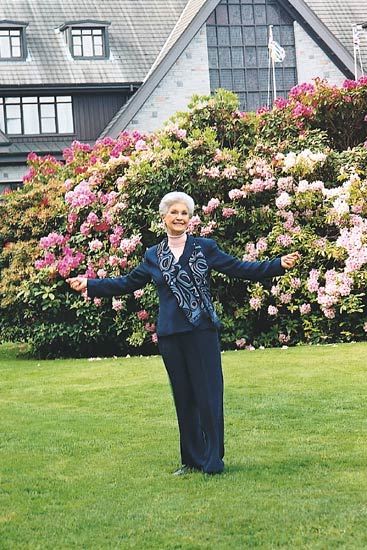
|
|
Lieutenant Governor of British Columbia, the
HonourableIona Campagnolo, welcoming visitors to the gardens at Government House. Photo by Joe Harvey |
The conference will be officially opened on Thursday morning by the Lieutenant Governor of British Columbia, the Honourable Iona Campagnolo. This distinguished lady, the Crown's representative in British Columbia, takes a keen interest in horticultural matters, and the garden of her residence - Government House - is one of the gardens that will be visited. After coffee, Dr. Quentin Cronk of the University of British Columbia will examine some of the reasons why so many of us, having come from all parts of the temperate world at considerable cost in both money and time, will be avidly assembled to discuss one sole genus of plants. (When one reflects on our great and pressing daily issues, is our annual meeting not a strange and remarkable occasion?) Dr. Cronk's dissertation will be followed by a well-researched talk by John Hammond of the Scottish Chapter on "The Campbell Gardens of Argyll." The stirring strains of the bagpipes will have preceded the entry of the Lieutenant Governor. All are encouraged to keep them resonating for John's talk.
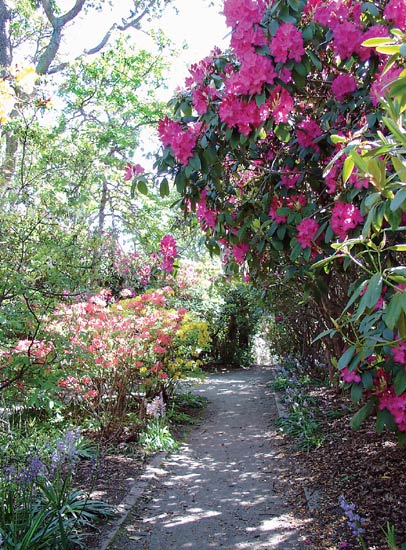
|
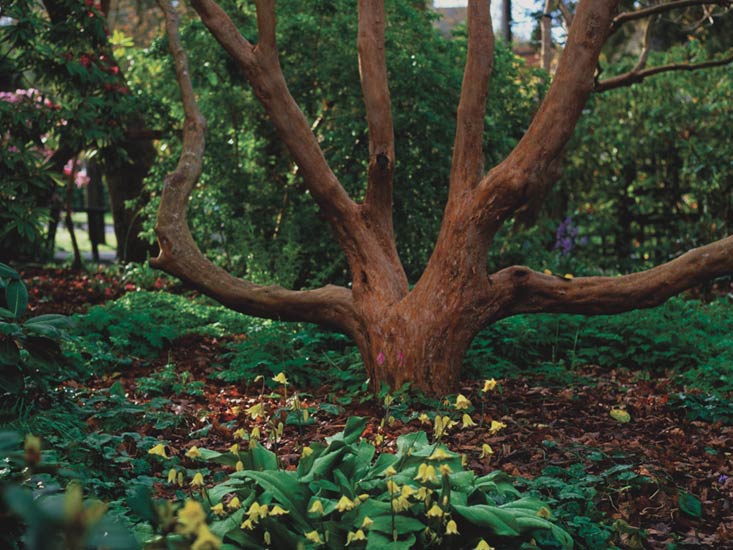
|
|
|
Playfair Park
Photo by Elizabeth Gordon |
The trunk of
R. thomsonii
and
erythroniums
at the Abkhazi garden.
Photo by Valerie Murray |
Delegates will board the tour buses at the Convention Centre at 12:30 p.m. each day. A boxed lunch will be provided to all tour goers. Thursday's tours will focus on five public gardens. There is, however, sufficient time to visit only three. All buses will go to the two largest gardens - Finnerty Garden at the University of Victoria and the Horticulture Centre of the Pacific. Each bus will go to one of the other three gardens - Abkhazi Garden, Playfair Park, and Government House. To this extent, it will be a Mystery Tour for the passengers: who goes where is a matter of chance.
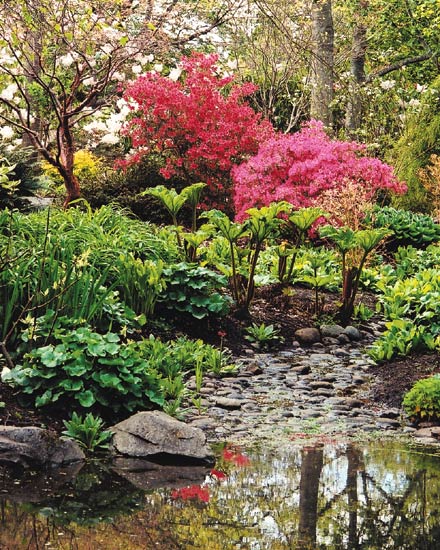
|
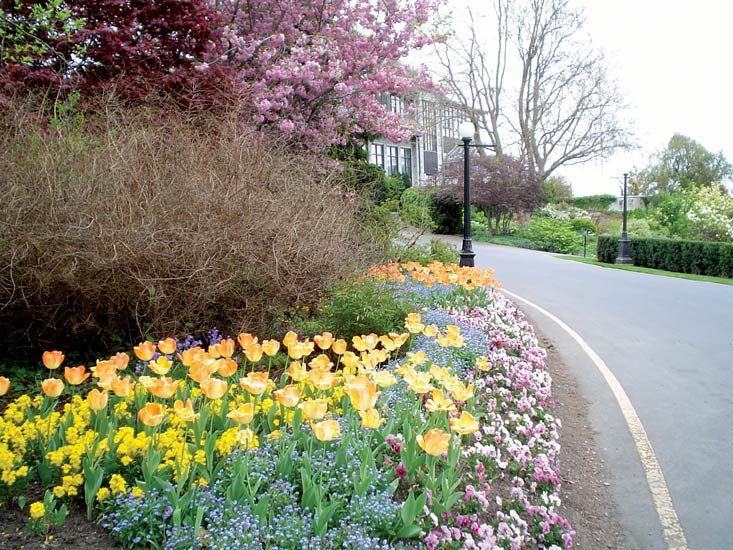
|
|
|
Finnerty Gardens
Photo by Daphne Donaldson |
Government House
Photo by Margaret de Weese |
On Thursday evening, all delegates can visit The Royal British Columbia Museum - a major tourist attraction - at no additional cost. We have reserved the entire third floor for our enjoyment. This contains many interesting exhibits and provides an appropriate environment for delegates to mingle and particularly to say "hello" to the executive and the directors of our Society. Dessert and coffee will be served, and there will be a no-host bar. Red wine, despite its coronary benefits, will not be served; museum curators have a phobia about the damaging effects of spills. Everyone will want to hear Dr. Ben Hall, of the University of Washington, who will lead off Friday at 8:30 a.m. with his significant presentation of his latest research on rhododendrons' DNA and how this may lead to revising our classification of the genus. Being present at the start of each talk will pay dividends, as we will be having a Roaming Raffle. To win, the holders of the tickets drawn must be in the conference hall.
The second talk will be by a charming couple from Tasmania, Joy Stones and Ted Cutlan. Having traveled halfway around the world for us, they will eagerly describe the "Tasmanian Experience," cleverly and appropriately called "From Silver Wattle to Silver Supreme." The third morning talk will be by Judy Walker. An Island resident, author, and experienced speaker, she will recount some of the history of the pioneering rhododendron nurseries of Vancouver Island.
Delegates can choose from two tours on Friday afternoon, both ranging a little further afield than the Thursday tours. One heads west, the other north, and both pass through and over some fine scenery. The western tour will visit three of four gardens on display. The Blackmore garden is a carefully planned hillside jewel, enthusiastically cultivated by Lois and Roy. The Hopper Garden was featured in the Spring 2004 edition of the Journal. Robin is a world-famous potter whose artistic talents extend to many areas, including horticulture. Dora Kreiss's garden features mainly species, particularly the big-leaf ones. Dora had an article on her garden in the Summer 2004 Journal. The fourth garden, a relatively recent creation by Moe and Hanna Massa, is an eclectic, whimsical, and labour-intensive garden with well-grown specimens.
The second choice for Friday heads up to the Malahat - the highest point on the Island Highway - our one road that stretches from the southern tip almost, but not quite, to the top. Again only three of four gardens can be visited. Dave and Laurana Dougan's garden commands a spectacular view of Saanich Inlet, one of the many fjords on the West Coast. Although not a large garden, it is choice in its plant material and setting. The Murray garden has one of BC's largest collections of magnolias. The luxuriance and abundance of rhododendron blooms demonstrates the effectiveness of the organic fertilizer that Liz and Alan have developed. The Cook's garden, tended by mother and daughter, Etta and Ruth, is a pastoral gem. It has a trout pond, a fine bog garden, mature rhododendrons, and a great variety of other plant material. The Campbell garden contains a fine collection of Daphne. Alan and Sandy have taken a special interest in Vancouver Island rhododendron hybrids. With an aim to grow them all, they have been assiduous and resourceful in locating and propagating so many.
We are to be truly honoured in having Keshab Pradhan from Sikkim as a speaker. Formerly the principal public servant in his country, this gentleman has taken a special interest in its native flora. In recognition of his work with rhododendrons, he was awarded the Society's Gold Medal in 2003. Keshab will give a talk on Friday night about "Trees of the Himalayas," and after Saturday's banquet he will speak on "Sustaining Sikkim's Rhodo Legacy for the World's Temperate Gardens." Saturday's first talk will be by Dr. Eric Allen, a plant pathologist with the federal Forestry Department, on "Alien Invasion - The Threat to Global Forests and Gardens." Eric possesses the wonderful skill of talking about morbid matters in a manner that captivates his audience. He will include a discussion about the contemporary thinking on Sudden Oak Death. Peter Wharton of the University of British Columbia will enthrall us with accounts of his travels and discoveries in southern China. Many of Peter's introductions are proving to be very fine additions to our gardens and are quickly becoming highly sought-after plants. The third talk will be by another antipodean, Lynn Bublitz from New Plymouth, New Zealand. Lynn is a man of great experience in the study of the habitat and culture of rhododendrons - particularly the Maddenia, the topic of his talk.
Tour goers will have to make another choice on Saturday afternoon. The world-famous Butchart Gardens will be the destination for some buses. The rest will go to three other famous Saanich Peninsula gardens. The Weesjes's garden, Towner Crest, is nine acres of mature specimens of the rarest and best rhododendrons, underplanted with great swathes of primula, erythronium, ferns, and many other native and exotic plants. The Trelawny garden, packed with the choicest plant material, sweeps down to Saanich Inlet. John is known for never having harboured a dislike for any plant. The Whitehead garden, featured in many gardening publications and television productions, is the epitome of knowledgeable, sensitive, and artistic design.
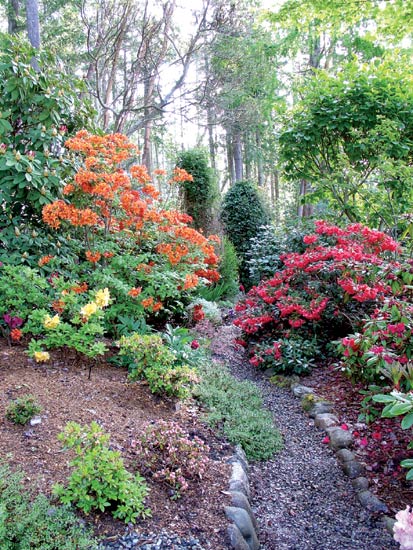
|
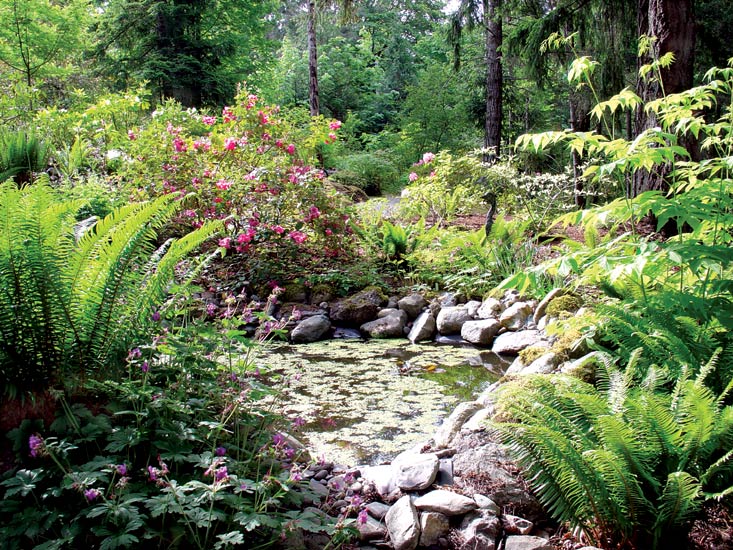
|
|
|
The garden of John and Ruth Trelawny.
Photo by Elizabeth Gordon |
The garden of Alan and Sandy Campbell.
Photo by Elizabeth Gordon |
The Saturday night banquet in the Convention Hall will be emceed by Wilson Grahame, a retired doctor. He is guaranteed to defeat any postprandial drowsiness with his keen Celtic humour. He will also ensure that the Society's business matters are dealt with expeditiously. As previously noted, the feature talk will be by Keshab Pradhan.
We will have an extra half-hour's sleep on Sunday; the first session will not start until 9:00 a.m. For many who attended the 1989 Victoria convention, the most memorable talk was by Ted Irving and Richard Hebda, "On the Origin and Distribution of Rhododendrons.” This paper was subsequently published in the Journal and has received acclaim worldwide by botanists, climatologists, ecologists, and many other scientific authorities. Ted and Richard have brought their combined skills to extend that study to magnolias. Their talk will add the next chapter of their research into plant evolution and distribution.
The final session for the 2005 convention will be the traditional Breeders' Round Table. This is an open forum led by a group of experts from all over the world. We encourage you to bring your questions and observations to this session - a session that always provides support and stimulation to all rhododendron growers.
The Victoria Rhododendron Society is confident that we have devised a good program; indeed, we hope a sterling one. Come and join us in the Silver Salute to our 25 years of rewarding growth - growth of friendships and of plants. Victoria opens its arms to you.
Norman Todd is a member of the Victoria Chapter.
